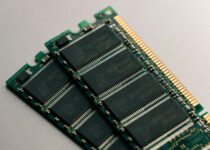The Ultimate Guide to Choosing a Gaming Laptop for Hacking
In today’s digital age, hacking has become a prevalent skill set sought after by both cybersecurity professionals and enthusiasts alike. Whether you’re diving into ethical hacking, penetration testing, or cybersecurity research, having the right tools can significantly enhance your capabilities. One such tool that’s gaining popularity among hackers is the gaming laptop. In this comprehensive guide, we’ll explore why gaming laptops are well-suited for hacking endeavors and provide valuable insights to help you choose the perfect machine to fuel your hacking aspirations.

Table of Contents
Why Gaming Laptops for Hacking?
Transitioning from traditional desktop setups to portable devices, such as laptops, has become increasingly common in the hacking community. Gaming laptops, in particular, offer a unique blend of power, performance, and mobility that perfectly aligns with the demands of hacking tasks. With advanced processors, ample RAM, and dedicated graphics cards, gaming laptops provide the horsepower needed to run resource-intensive hacking tools and simulations effectively. Additionally, their compact form factor allows hackers to work from virtually anywhere, making them ideal for on-the-go professionals and digital nomads.
Gaming laptops also boast impressive cooling systems, crucial for maintaining optimal performance during prolonged hacking sessions. The ability to overclock components further enhances processing speeds, enabling hackers to tackle complex tasks with ease. Furthermore, the high-resolution displays commonly found in gaming laptops offer crisp visuals, facilitating detailed analysis and code inspection—a must-have for any serious hacker.
Key Features to Consider:
When selecting a gaming laptop for hacking purposes, several key features warrant careful consideration. Firstly, prioritize processing power. Opt for laptops equipped with multi-core processors, such as Intel Core i7 or AMD Ryzen 7 series, to ensure smooth multitasking and efficient execution of hacking tools. Additionally, ample RAM—ideally 16GB or higher—will prevent bottlenecks and allow for seamless operation of virtual machines and memory-intensive applications.
Storage capacity is another vital aspect to evaluate. Solid State Drives (SSDs) offer lightning-fast boot times and data access speeds, accelerating system responsiveness and reducing load times for hacking software. Consider opting for models with both SSDs and traditional Hard Disk Drives (HDDs) for a balance between speed and storage capacity.
Graphics performance, although primarily associated with gaming, can also benefit hackers, especially those involved in GPU-accelerated tasks like password cracking and cryptographic analysis. A dedicated graphics card, such as NVIDIA GeForce or AMD Radeon series, will offload processing tasks from the CPU, improving overall system performance.
Portability and Durability:
In the realm of hacking, mobility is key. Opt for a gaming laptop that strikes a balance between portability and durability, ensuring it can withstand the rigors of frequent travel and use in various environments. Look for lightweight designs and sturdy build materials, such as aluminum or carbon fiber, that can withstand bumps and knocks without compromising performance.
Battery life is another crucial consideration for hackers who frequently work on the move. Choose a laptop with long-lasting battery performance to minimize interruptions during critical hacking tasks. Additionally, invest in portable power banks or external battery packs for extended periods away from power outlets.
Display and Ergonomics:
A high-quality display is essential for hackers who spend long hours analyzing code, deciphering logs, and conducting security assessments. Opt for gaming laptops with vibrant, color-accurate displays and wide viewing angles to reduce eye strain and enhance productivity. Consider models with matte screens to minimize glare and reflections, especially when working in brightly lit environments or outdoors.
Ergonomics plays a significant role in user comfort during extended hacking sessions. Look for laptops with comfortable keyboards and responsive touchpads or consider pairing them with external peripherals for a more ergonomic setup. Adjustable display hinges and ample ventilation are also important factors to ensure optimal viewing angles and heat dissipation, respectively.
Connectivity and Expandability:
Hackers often require a myriad of connectivity options to interface with external devices, network infrastructure, and peripherals. Prioritize gaming laptops equipped with a comprehensive selection of ports, including USB Type-A and Type-C, HDMI, Ethernet, and SD card readers, to accommodate a wide range of accessories and connectivity needs.
Furthermore, consider the laptop’s expandability options. Choose models with accessible upgrade paths for components such as RAM and storage to future-proof your investment and adapt to evolving hacking requirements. Some gaming laptops even feature modular designs that allow for easy access to internal components, simplifying maintenance and customization.
Security Features:
Given the nature of hacking activities, security is paramount. Look for gaming laptops equipped with robust security features to safeguard sensitive data and protect against potential threats. Features such as biometric authentication (fingerprint sensors or facial recognition), Trusted Platform Modules (TPM), and hardware-based encryption are invaluable for securing confidential information and preventing unauthorized access.
Additionally, consider laptops with physical privacy features, such as webcam shutters and microphone mute buttons, to mitigate the risk of surveillance and unauthorized audiovisual capture during hacking sessions. Implementing robust password management practices and encryption protocols further enhances data security and confidentiality.
Price and Value Proposition:
While gaming laptops packed with cutting-edge features and specifications may be enticing, it’s essential to strike a balance between performance and affordability. Determine your budget constraints and prioritize features that align with your hacking requirements without overspending on unnecessary bells and whistles.
Consider the long-term value proposition of your chosen gaming laptop, factoring in factors such as warranty coverage, customer support, and software ecosystem. Investing in a reputable brand known for quality products and reliable after-sales service can provide peace of mind and ensure a satisfactory ownership experience.
Conclusion:
In conclusion, gaming laptops offer a compelling platform for hackers seeking to enhance their skills and capabilities. With their potent combination of power, performance, and portability, gaming laptops are well-suited for a wide range of hacking tasks, from penetration testing to cybersecurity research. By carefully evaluating key features such as processing power, storage, portability, and security, you can choose the perfect gaming laptop to unleash your hacking potential and embark on exciting digital exploits.
FAQs:
1. Why choose a gaming laptop for hacking instead of a traditional laptop or desktop? Gaming laptops offer a unique blend of power, performance, and portability, making them ideal for hacking tasks. Their advanced processors, ample RAM, dedicated graphics cards, and robust cooling systems provide the horsepower needed to run resource-intensive hacking tools effectively. Additionally, their compact form factor allows for on-the-go hacking sessions, enhancing flexibility and mobility.
2. Are gaming laptops suitable for both beginner and advanced hackers? Yes, gaming laptops cater to hackers of all skill levels. Beginners will appreciate their user-friendly interfaces and powerful performance for learning hacking techniques, while advanced hackers can leverage their robust specifications for complex tasks like penetration testing, vulnerability assessment, and cybersecurity research.
3. Can gaming laptops handle virtualization for running multiple operating systems simultaneously? Absolutely. Gaming laptops typically come equipped with ample RAM and powerful processors, making them well-suited for virtualization tasks. Whether you’re running multiple virtual machines for testing purposes or setting up isolated environments for security research, gaming laptops provide the necessary horsepower to handle virtualization with ease.
4. Are gaming laptops secure for hacking activities? While no system is entirely immune to security risks, gaming laptops can be made secure for hacking activities with proper precautions. Ensure your laptop is equipped with robust security features such as biometric authentication, Trusted Platform Modules (TPM), and hardware-based encryption. Implementing best practices such as regular software updates, strong passwords, and encrypted communication channels further enhances security during hacking endeavors.



